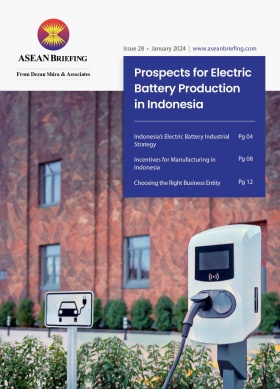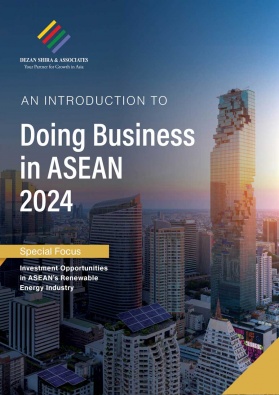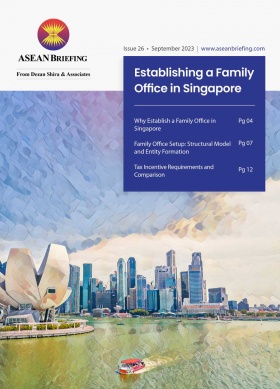Navigating ESG Reporting in Singapore
Sustainability reporting in Singapore has evolved since the turn of the millennium with reporting provisions for Singapore-based companies have slowly increased.
Since 2016, the Singapore Exchange (SGX) has made it mandatory for all listed companies to disclose and publish an annual sustainability report. These reports are intended to complement the financial reports issued by listed companies and thus show how environmental, social, and governance (ESG) risks and opportunities are being managed.
The ESG reports were initially made mandatory for businesses engaging in the financial, agriculture, energy, food, and forest products industries. However, from 2024 onwards, this policy now extends to players in the materials buildings, and transportation industries.
Southeast Asia is one of the most vulnerable regions to climate change and faces numerous challenges from rising sea levels to droughts and heatwaves. Yet, the focus on ESG factors for businesses in Southeast Asia remains at a relatively early stage compared to global markets. However, there has been increasing awareness and adoption of ESG-related policies across regional governments.For Singapore, the city-state is trying to cement its status as a hub for enterprises that prioritize achieving their ESG targets and encouraging capital inflows to sustainable projects.
Understanding the regulatory landscape
Green Finance Action Plan
The Green Finance Action Plan (GFAP) was launched by the Monetary Authority of Singapore (MAS) in 2019 with the ultimate objective of developing Singapore as a hub for green finance.
This will be done by strengthening the financial sector’s resilience to environmental risks, developing financial solutions and markets, harnessing technology to harness sustainable financial flows, and building capabilities in sustainable finance.
Singapore Sustainable Finance Association
A new association that was launched in January 2024, the Singapore Sustainable Finance Association (SSFA) aims to develop the local talent pool and industry standards needed to enhance the city-state’s position as a leading center for sustainable finance.
SSFA can lead the way in industry best practices such as transition finance or carbon credit trading. Further, the association can bring together financial institutions to address barriers that hinder the financing of sustainability projects
International Sustainability Standards Board
Adherence to the standards issued by the International Sustainability Standard Board (ISSB) is currently voluntary in Singapore, but firms should watch out for developments in 2024 confirming that companies (listed & large private companies worth more than S$1bn (US$744 million) may have to adopt ISSB reporting standards in the coming years.
Environmental risk management
To enhance the resilience of financial institutions to environmental risk, the Monetary Authority of Singapore (MAS) introduced its guidelines on environmental risk management in 2020. The guidelines apply to fund management companies registered in Singapore in addition to holders of capital markets licenses for fund management and real estate investment trust management.
Financial institutions are expected to incorporate environmental considerations into their business strategies and product offerings. This is in line with the recommendations set out by the Taskforce on Nature-related Financial Disclosures (TNFD) on environmental considerations issued in 2023. Some 320 organizations from over 40 countries have committed to making nature-related disclosures based on the TNFD recommendations.
The Centre for Nature-based Climate Solutions at the National University of Singapore became a TNFD knowledge partner in mid-2022.
Further, these institutions should put in place policies that monitor and manage such environmental risks. Also, financial institutions should make meaningful disclosures of their environmental risks to stakeholders.
MAS’ new platform for ESG data collection
The Monetary Authority of Singapore launched a new digital platform called Gprnt (pronounced as Greenprint), which aims to simplify how the financial sector collects, access, and acts upon environmental, social, and governance data. Grnpt will also play a pivotal role in facilitating the seamless exchange of ESG data between the financial sector and the real economy, leveraging access to comprehensive global and sector-specific data platforms.
What are the key functionalities of Gprnt?
Gprnt aims to help businesses automate their ESG reporting. Gprnt will integrate the digital systems employed by businesses in their daily activities such as bookkeeping, payment gateways, and networks for artificial intelligence. These integrations will allow businesses to consent to the release of data via application programing interfaces (API) and enable Gprnt to compute their sustainability metrics.
Gprnt will compute source data into ESG-related outputs for business reports and corporate references. The platform will use intelligent document processing to extract the data from files uploaded by users. As such, the platform will cater to the mapping of sustainability metrics across key global reporting standards automatically generate basic sustainability reports for businesses, and reduce their corporate costs.
This will reduce duplicate reporting for businesses that adhere to different sustainability reporting standards if their activities span multiple markets. Moreover, businesses can share their ESG reports with financial institutions, government bodies, and industry partners, among others.
Importantly, Gprnt can fully support the ESG reporting needs of small and medium enterprises (SMEs). The platform’s reporting solutions and integration with government bodies such as the Accounting and Corporate Regulatory Authority (ACRA), the Enterprise Singapore, and the Infocomm Media Development Authority (IMDA) are vital in assisting SMEs in commencing their sustainability reporting journeys.
About Us
ASEAN Briefing is produced by Dezan Shira & Associates. The firm assists foreign investors throughout Asia and maintains offices throughout ASEAN, including in Singapore, Hanoi, Ho Chi Minh City, and Da Nang in Vietnam, in addition to Jakarta, in Indonesia. We also have partner firms in Malaysia, the Philippines, and Thailand as well as our practices in China and India. Please contact us at asean@dezshira.com or visit our website at www.dezshira.com.
- Previous Article Updates on Indonesia’s Social Security Schemes
- Next Article Applying ESG Metrics for Sustainability Reports in Singapore








